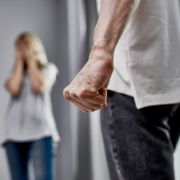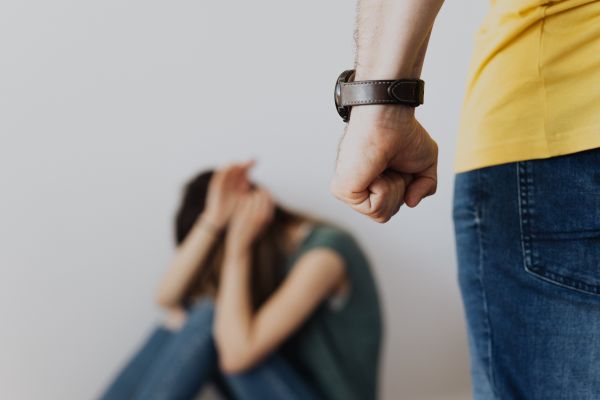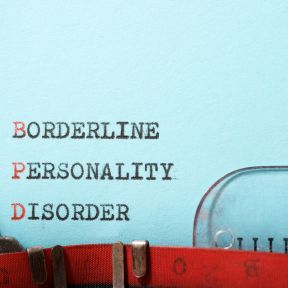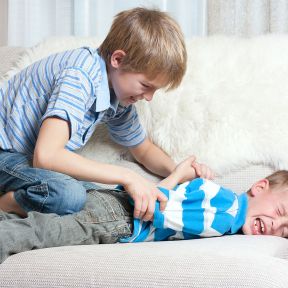
Domestic Violence
Domestic violence occurs when a person consistently aims to control their partner through physical, sexual, or emotional abuse. The United States Department of Justice defines domestic violence as “a pattern of abusive behavior in any relationship that is used by one partner to gain or maintain control over another intimate partner.”
Contents

Domestic violence can be physical or psychological, and it can affect anyone of any age, gender, race, or sexual orientation. It may include behaviors meant to scare, physically harm, or control a partner. And while every relationship is different, domestic violence typically involves an unequal power dynamic in which one partner tries to assert control over the other in a variety of ways.
Insults, threats, emotional abuse, and sexual coercion all constitute domestic violence. Some perpetrators may use children, pets, or other family members as emotional leverage to get their victim to do what they want. Victims of domestic violence experience diminished self-worth, anxiety, depression, and a general sense of helplessness that can take time and often professional help to overcome.
A clinician who works with victims of domestic violence may be able to help an individual extract her or himself from the situation, as well as offer psychological support. Find a therapist who can help here.
Abusive relationships can take many different forms, such as physical abuse (hitting, pushing, or denying medical care), emotional abuse (manipulation, threats, or name-calling), sexual abuse (rape, assault, or pressuring the person to have sex), and economic abuse (withholding funds or putting someone in debt).
Abuse is driven by the desire for control—to maintain power in the relationship and assume a position of superiority. Violence also involves troubling cultural norms, particularly in cases of men sexually assaulting women. Whether the brain perceives the partner as part of the self or not may also play a role, research suggests.
There are a multitude of reasons why victims don’t report sexual abuse in general, and domestic violence only involves more complexity. Research on spousal rape, for example, finds that many suvivors did not resist due to fear of injury, fear of their efforts being futile, and fear of how that resistence would influence the marriage.
Technology has enabled domestic abusers to track and stalk their victims, communicate with them incessantly, and wield power through digital devices in the home, such as remote-controlled alarm systems, thermostats, and lighting. These tactics create a sense of complete control, instilling fear, isolation, and humiliation in victims.

Abusers aren’t easy to spot. In public, they can seem smart, trustworthy, and charming with a personality that draws people in, but in private, they are a waking nightmare. Many abusers learn violence from their family and repeat the toxic patterns with their own partner or children. They are also more likely to have legal and substance abuse problems.
Heterosexual male abusers often believe in traditional gender roles, particularly that a woman’s main priority should be to care for their partner and children. They have to be in control and are especially prone to jealousy, accusing their partner of cheating without any reason or needing to know where their partner is at all times.
Abusers often isolate their victims from family, friends, work, and any other outside sources of support. They may have explosive tempers and become violent during an abusive episode; afterward, they become remorseful and try to woo their partner back with charm and affection and promises to change, but the abusive behavior rarely stops.
Abusive relationships center around control and power. Common tactics that perpetrators use include:
1. A pattern of violence—episodes interspersed with apologies, gifts, and promises to stop
2. Isolating the victim from friends, family, hobbies, or even their job
3. Instilling guilt in the victim for their behavior or wanting more freedom
Outside of physical abuse, subtler signs of domestic abuse include extremely controlling behavior, aggression, blame, and severe jealousy and possessiveness. One of the most concerning signs of domestic violence is strangulation: Studies find that abuse involving strangulation is one of the strongest predictors of attempting or completing a murder.
The drive for control, power, and authority while instilling doubt, shame, and dependence in their partner characterizes narcissistic abuse. Perpetrators may blame the victim and refuse to take any responsibility for their behavior. They may isolate and denigrate the victim, or leverage verbal abuse and manipulation.

It can take time before victims of domestic violence recognize their situation for what it is. Abuse often leaves physical marks, from bruises and broken bones to shortness of breath and involuntary shaking. Seeming more prone to “accidents” than the average person can be a warning sign that someone is being abused. Abuse victims can also suffer both short- and long-term emotional and psychological effects, including feelings of confusion or hopelessness, depression, anxiety, panic attacks, and post-traumatic stress disorder (PTSD).
Domestic violence is the most common cause of injury for women, leading to even more injuries than car accidents. The physical consequences can be short-term, such as bruises, pain, and broken bones, or long-term, such as arthritis, hypertension, and cardiovascular disease. The lasting consequences psychologically include depression and post-traumatic stress disorder.
Nine percent of men may experience domestic violence, which includes stalking, sexual assault, and physical violence, according to one UK study. Other research suggests that 28 percent of men experience intimate partner violence in the U.S. Men face distinct hurdles getting help, because they can be pathologized, not believed, or denied assistance from shelters created for women.
Men often don’t report domestic violence due to fear, shame, denial, stigma, and a lack of equal treatment. As a result, men minimize the abuse to protect themselves. One study participant explained that he feared being “laughed at, humiliated, or reversely accused of being the abuser due to a belief that men are physically capable of fighting back when being challenged.”
Domestic violence can instill fear and confusion in a child, all while their caregiver is often physically or emotionally unavailable. Children who witness domestic violence are more likely to struggle with insomnia, bed-wetting, verbal, motor, or cognitive challenges, anxiety, depression, self-harm, aggression, and domestic violence as an adult.

Leaving an abusive relationship is exceptionally challenging, both emotionally and practically. The process involves acknowledging the abuse that’s occurring, finding support to leave safely, and processing the experience and the remaining pain or fear.
Survivors can gradually work to rebuild the self-esteem that was damaged in the relationship. Developing a non-judgmental support system, practicing self-care, and discussing the experience with a mental health professional can all help survivors in the aftermath of the relationship.
Identifying a pattern of abuse and making the decision to leave can be incredibly difficult. A few of those barriers include financial stress, having nowhere else to go, the threat of violence, and a lack of support from law enforcement. Family and social expectations may also create pressure to stay, especially when children are involved.
Survivors first need to acknowledge the abusive relationship. Writing down a partner’s behavior to identify patterns and speaking with a trusted friend or family member can help. Reaching out to a domestic violence organization can help with developing a safety plan to leave, and speaking with a therapist can help process the experience and rebuild self-esteem.
Society can empower—rather than stigmatize—abuse victims by directing them to supportive resources, making mental health care accessible and affordable, and developing and evaluating prevention programs. Since financial strain is a key component, workplaces can help by creating policies to protect and support employees who are victims of intimate partner violence.














